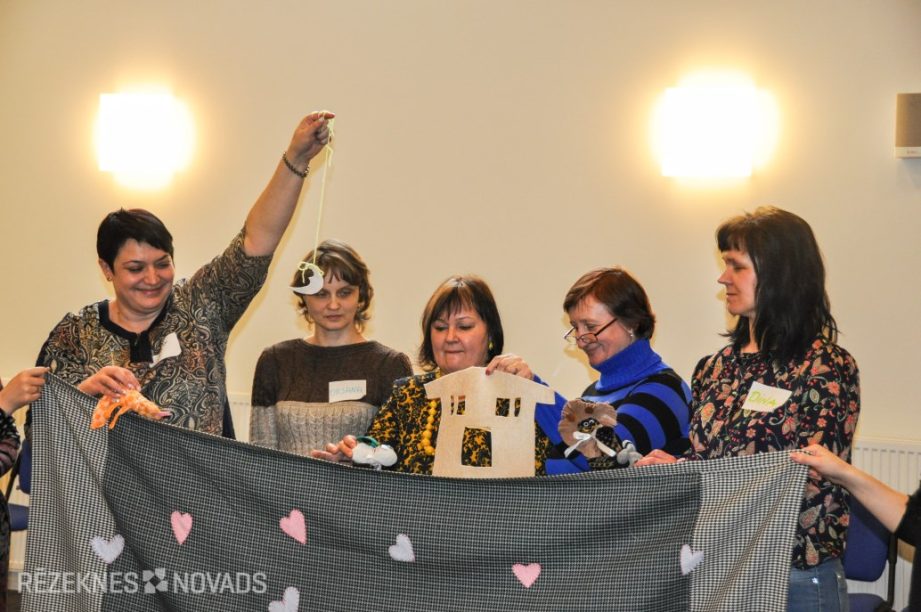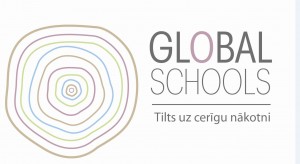Methodological materials issued in Latvia on the topics of global education for pre-schools and primary schools

The methodology for global education in Latvia has so far been developed mostly for primary and secondary schools, but there are also some materials for pre-schools and primary schools. Looking at the range of existing materials, it can be concluded that the most widely considered topic of global education in these materials is the environment and sustainable development, but topics such as intercultural issues, migration, tolerance, education for peace also appear. Materials offer not only different methods and ideas for activities such as working with these topics, but also theoretical insights. Some of these materials include activities which are intended not only for pre-schools and primary schools but also for primary schools and secondary schools, thus educators themselves must assess which of these activities are relevant to the age group they are working with.
One of the materials created specifically for small children is “Ecoschool Methodological Material for Pre-school Educational Institutions” (Mangule, 2008), which has been issued by the “Environmental Education Fund”. At the beginning of the material, a brief overview of the Eco-Schools programme is provided, followed by a presentation of the themes of the Latvian Ecosylum Programme, offering both theoretical interpretation of themes and various ideas for activities. Given that it is easier for children in pre-school to understand the world through imagination, global thinking, then this material offers a number of activities that activate this imagination – various stories and questions for their reflection, role-playing games, ideas for workshops, experiments, games and games.
“Humana People to People in Latvia” (HPPL) has created 3 materials designed specifically for pre-schools and primary schools on topics such as intercultural issues, environment and sustainable development. When creating global educational materials, HPPL uses an approach that combines different ideas for working and playback elements (theatrical playback, hand-held theatre, stories and stories). The materials created by the association are a resource that teachers can use at their own discretion and enrich with their ideas. The materials created by the HPPL society are the following: the book “hands-dolls story African children's stories” (2009), which introduces children and adults with African story-telling traditions and the world that children in Africa see - filled with different animals and interesting occurrences, thus opening a broader view of other cultures. Together with this material, methodological guidelines have been drawn up for teachers with recommendations on how to use the book with children of pre-school and primary school age (humanana People to People in Latvia, 2011). The third created material is “glove Dukša and socks” (Laurina, 2011), which encourages children to think about environmental issues and offers different ideas how to create toys from materials that are no longer used.
As mentioned above, some materials issued in Latvia on global education for pre-schools and primary schools also include activities for older children. One such material is “education for change: a guide for teaching and learning sustainable development” (Jutvik, 2008), which has been issued by the Baltic University programme and the University of Uppsala. This material is a teacher guide – a practical guide for teaching and learning for sustainable development from primary school to primary school, activities are intended for children aged 6-14 years.
“National Inspectorate for the Protection of Children” has issued material on the “methodological material for the promotion of tolerance in an educational institution” (Muceniece, 2008). This material is suitable for work in both pre-school and primary schools and work with older children. The purpose of the material is to raise awareness of intolerance, to promote the understanding of its causes, to acquire knowledge as a response to both the feelings and thoughts of the victim and the perpetrator, and to create an understanding that everyone has the opportunity to engage in the prevention of intolerance. The material also offers practical methods to do when intolerance is established. The theme of “tolerance” of this material is essential in the context of global education, in particular as regards education for peace and how to reduce intolerance at local level, and to promote a common understanding of peace and its importance in a broader context.
Another global educational material has been issued by the Centre for Education Development (IAC) - “methodological material in global/development education” (IAC, 2011). This material includes some activities on globalisation, the environment, human rights, which are intended for children in pre-school and primary school ages, but the majority of the material in the material is primary school and secondary school children.
The main result of the “global school” project of the municipality of Rezekne is the creation of global educational methodological material for pre-schools and primary schools to be used in the context of Rezekne and Latvia. The insight into existing material helps to see and analyse what has already been done and on this basis, the project expert team will continue to work to produce new material, suitable for the Latvian educational environment. The methodological material created within the project will be available in an Internet environment with an opportunity to download it to all stakeholders.
1. Humanana People to People in Latvia, (2009). Hands dolls tell African children's stories. Material available: https://hppinlatvia.files.wordpress.com/2011/12/rokas-dolelles-stc481sta1.pdf
2. Humanana People to People in Latvia, (2011). Hands dolls tell African children's stories. Methodological guidelines for planning and implementing lessons. Material available: https://hppinlatvia.files.wordpress.com/2011/12/metodiskas-gulinij_Latvians-val.pdf
3. The Centre for Development Development (2011). Methodological material in global/development education. Material available: http://www.skolaskasateliti.lv/files/metodiskais_materials_pr2.pdf
4. Sensitivity G. (2008). Education for change: a guide to the teaching and learning of sustainable development. Baltic University Programme, University of Uppsala. Material available: http://videsskola.lv/attachments/020_Rokasgramata.pdf
5. Laurina I. (2011). The unusual adventures of the glove and the Zealand. Humane People to People in Latvia. Material available: http://hpplatvia.com/index.php/2015/08/05/cimduduksa-friends /
6. Mangule I. (2008). The EcoSchools' methodological material for pre-school educational institutions. Environmental Education Foundation. Material available: http://www.videsfonds.lv/documents/ekoskolu-methodal-materi-Ls-pii.pdf
7. Muceniece I. (2008). Methodological material for the promotion of tolerance in an educational institution. National Inspectorate for the Protection of Children's Rights. Material available: www.bti.gov.lv/in_site/tools/download.php?file=files/text/ieciet.veic.izgl.iest.pdf
Ruth Kronberg - Project Global School Expert
Photo: Eduards Medvedev and Inta Ozolniece
 This project is financed by the support of the European Commission. This publication reflects only the opinions of the author and the Commission cannot be liable for any possible use of the information contained therein.
This project is financed by the support of the European Commission. This publication reflects only the opinions of the author and the Commission cannot be liable for any possible use of the information contained therein.



